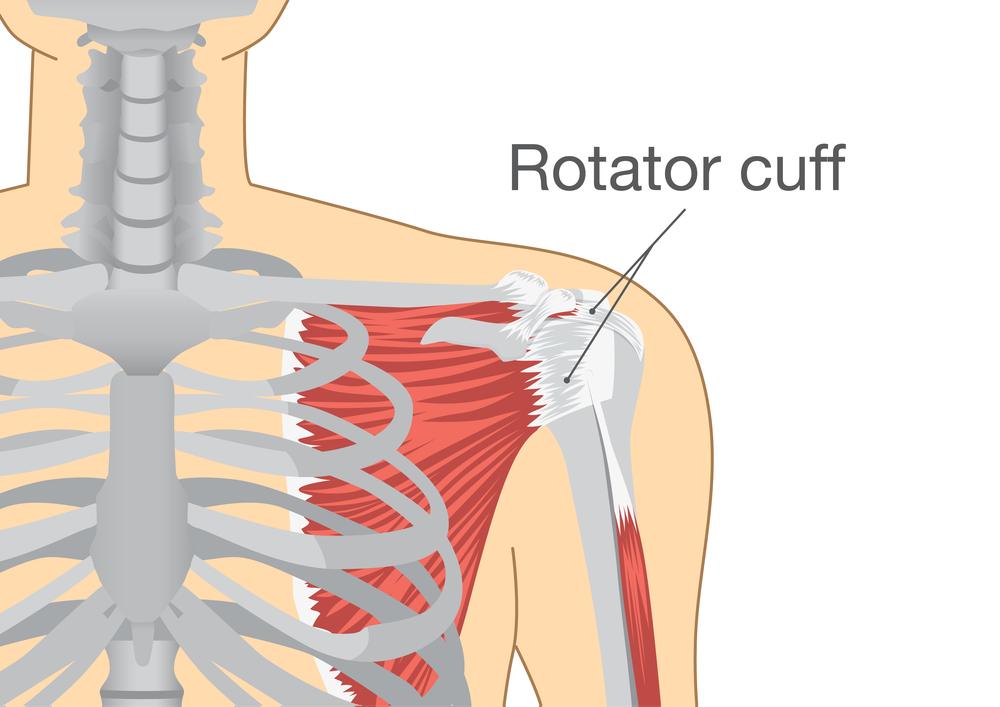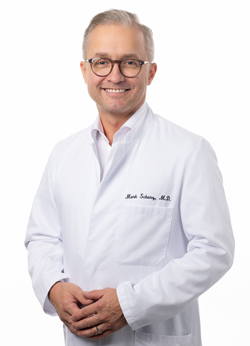What is the Rotator Cuff?

The rotator cuff is a tendinous plate into which several muscles insert. It covers the head of the humerus and is primarily responsible for shoulder movement. The four inner shoulder muscles from which these tendons originate help the upper arm with lifting and rotation. In the event of a tear, there is a restricted range of motion in the shoulder joint. The pain can radiate into the upper arm.
Cause of Rotator Cuff Tear
There are two main causes for a rotator cuff tear:
- Degeneration
- Injury
Rotator cuff injuries most commonly occur due to overuse during overhead activities and heavy lifting. Sports injuries or a fall can also be the cause. However, rotator cuff tears can also occur in patients who do not engage in sports or physical exertion. In this case, the cause is the natural aging and wear and tear of the muscles and tendons.
Symptoms of a Rotator Cuff Tear
If the rotator cuff tendon tear is recent, affected individuals complain of stabbing pain when moving the arm upwards. Additionally, there is a loss of arm strength. The pain often occurs at night, especially when lying on the side of the affected shoulder.
Diagnosis of Rotator Cuff Tear
The diagnosis is made clinically. Specific tests can precisely determine which tendon is torn. X-rays and Magnetic Resonance Imaging (MRI) are necessary for further clarification. An ultrasound examination may also be required.
Therapy for Rotator Cuff Injury
For small tears or existing tendon degeneration, a non-operative therapeutic approach can be chosen.
Depending on the extent, the following are used:
- anti-inflammatory pain relievers
- therapeutic exercises
- physical therapy measures
For larger tears and when conservative measures are ineffective, surgical intervention is required. The earlier the intervention is performed, the better the chances of success and healing outcomes. The goal is the stable repair of the torn tendon.
The operation is performed using arthroscopic “all-inside” technique, as well as mini-open technique.
Aftercare
After the operation, the shoulder must be immobilized for approximately 6 – 8 weeks for optimal healing. Physical therapy is then necessary.
Are you looking for an experienced shoulder specialist in Vienna? Do not hesitate to contact me. My practice in the Wiener Privatklinik is centrally located in the 9th district of Vienna.

Dr. Mark Schurz
